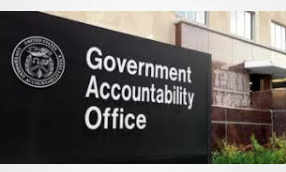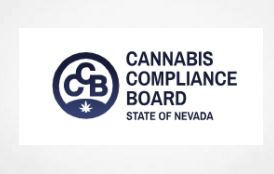The Attorney General (AG) made history yesterday when he initiated proceedings to transfer cannabis from schedule I to schedule III, in a Notice of Proposed Rulemaking (NPRM; here, expected to be published shortly in the Federal Register), and as recommended by the Assistant Secretary for Health of the U.S. Department of Health and Human Services (HHS). The much-heralded move had been long expected, particularly after the initial publication of HHS’s Schedule III recommendation (in August 2023, here) followed by the unredacted official release this past January of its letter to the Drug Enforcement Administration (DEA) setting forth the agency’s reasoning (here). It also comes more than 19 months since President Biden directed HHS and the AG to “expeditiously” conduct an administrative scheduling review of the substance.
As president Biden stated yesterday morning: “This is monumental.” But, it is not the final step. Once the NPRM is officially published, the public will have an opportunity to voice issues and provide additional data, which the DEA has requested and will consider as it finalizes its own final position on the merits supporting rescheduling.
Immediate impact and next steps in the process
Although a common misconception, the AG’s decision to reclassify cannabis will neither legalize nor eliminate current state cannabis programs. Under schedule III, cannabis will remain a controlled substance and state-legal programs will continue to operate outside of federally legal channels in their distribution of the substance. In other words, much will remain the same.
That said, there is one notable impact (besides facilitating increased federally approved research into cannabis): rescheduling cannabis to schedule III will remove the various tax-related hindrances tied to application of IRS code section 280E to cannabis-related businesses. Among other things, cannabis-related businesses (whether involved in medical or adult-use cannabis) will finally be able to take advantage of all applicable regular business deductions and credits on their business tax returns.
Additionally, we remind all stakeholders that while yesterday’s posted NPRM is an important milestone, it is but one step in the rescheduling process that will undergo a robust administrative process before a final rule is issued. The process begins with a 60-day period for public comments to the proposed rule, which is a standard feature of federal agency notice and comment rule-making. Proposed reschedulings (such as yesterday’s NPRM) also permit any interested party to request “hearings on the record” within 30 days of the NPRM’s publication in the Federal Register. Should such hearings be permitted to occur, this “hearing stage” will be overseen by a federal administrative law judge (ALJ). Those parties that successfully request the hearing (as well as other parties that petition to join the proceedings, if held) will be allowed to put forth their position on the proposed rule and to present evidence, which may be cross-examined. At the close of the hearings, the ALJ will gather the entire record, including evidence compiled at the hearing and also the public’s comments, before issuing its “decision.” Based on the NPRM, we believe it very likely that hearings will occur.
Regardless, the ALJ’s decision is more akin to a recommendation, as the AG (and the DEA) will review the ALJ’s work and publish the “final rule” in the Federal Register. At that time, the new rule can be challenged in court. See 21 U.S.C. § 877. Given the strong public views regarding cannabis rescheduling, we are confident that there will be more than one such challenge.
While the administrative process is generally understood, its timing can vary widely. Based on our analysis of prior reschedulings, and in the absence of any formal hearings on the record, a final rule could be issued before the upcoming election. However, if hearings are permitted, and prior history is any indication, a final rule may not be issued until well after the next election and the potential installation of a new administration.
Analysis of NPRM – A call to action
As a reminder, in its 252-page analysis, HHS concluded, citing credible scientific support, that cannabis had a “currently accepted medical use” and had a “potential for abuse less than the drugs or other substances in Schedules I and II,” such as heroin (Schedule I) and fentanyl (Schedule II). Pointedly, HHS also concluded, after a review of “various epidemiological databases” (here), that even alcohol—which is not a scheduled drug—had greater “adverse consequences” than cannabis. Dentons strongly supports the agencies’ exhaustive and well-reasoned analyses underlying yesterday’s NPRM and congratulates all of our clients (and other stakeholders) for contributing to this impressive outcome.
While this is a momentous milestone, the industry’s work is not over. The NPRM was striking in what it lacked: clear DEA support for the rescheduling. Indeed, the NPRM notes that the “DEA has not yet made a determination as to its views of the appropriate schedule for marijuana . . . .” Among other things, the DEA “believes that additional data on marijuana’s pharmacological effects” as well as its “routes of administration”, “impact on Δ9-THC potency”, “marijuana’s pattern of abuse”, “public safety risks”, and other information “may be appropriate for consideration” for purposes of rescheduling cannabis. See, e.g., NPRM, at pp. 13, 31, 37, 49, 61.
It was thus not surprising that the AG repeatedly stressed the primacy of HHS’s recommendation in its decision to initiate cannabis’s rescheduling. According to the NPRM, for example, “’[t]he categorical use of the word ‘binding’ in section 811(b) suggests that Congress intended HHS’s scientific and medical views to at least be a very significant input in the scheduling process’” and are thus accorded “significant deference through the rest of the rulemaking process.” See, e.g., NPRM at p. 7.
We expect the notice and comment period to bear out HHS’s initial recommendation. For several years, the medical community repeatedly signaled it support for rescheduling cannabis, recognizing its currently accepted medical uses. The American Medical Association (AMA) has publicly called for the federal government to review the status of cannabis “as a federal schedule I controlled substance . . . with the goal of facilitating the conduct of clinical research and development of cannabinoid-based medicines, and alternate delivery methods” (here). Likewise, the American Academy of Family Physicians advocated in 2019 for “decreased regulatory barriers to facilitate clinical and public health marijuana research, including reclassifying marijuana from a Schedule I controlled substance” (here). The National Academies of Sciences, Engineering, and Medicine similarly urged (in 2017) the federal government to reconsider the scheduling of cannabis, stating that the classification of cannabis as a Schedule I substance “impeded the advancement of research” needed to further study the effects of cannabis use (here). Furthermore, various advocacy groups, including Americans for Safe Access and NORML, made publicly available their collections of scientific evidence supporting the medical utility of cannabis (see, e.g., here).
The same is true of the international medical community. Since 2003, when the Netherlands legalized cannabis for medical use, more than 50 countries around the world (more than a quarter of UN-member states) recognized cannabis’ medicinal value and legalized access to cannabis for medical use. Also, seven of the top ten countries which make up the largest pharmaceutical markets in the world long recognized the medical utility of cannabis and cannabinoids, and have made (or are in the process of making) revisions to their national laws to allow prescription of medical cannabis or cannabis-based medicines: United Kingdom, Germany, Italy, Spain, France, Japan and Canada. The old US position (of no accepted medical use) had put the largest pharmaceutical market in the world (the USA) at odds with the majority of the rest of pharmaceutical world.
Regarding the question of whether cannabis could be rescheduled under U.S. treaty obligations—notably, the Single Convention on Narcotic Drugs, 1961—the DEA answered in the affirmative. Relying on an analysis by the Office of Legal Counsel, the DEA expressly stated that cannabis could be rescheduled to schedule III without running afoul of U.S. treaty obligations by issuing regulations providing for additional treaty-required controls. The NPRM did not include such draft regulations but did note that the DEA would “seek to finalize any such regulations as soon as possible” “in the event that marijuana is rescheduled to schedule III.” NPRM at p. 86.
Conclusion
The NPRM is a victory for proponents of cannabis policy reform and the federal recognition of cannabis’s medical benefits and constitutes a critical step toward descheduling cannabis all together. However, the process is not over and decision-makers and final arbiters are calling for a robust comment period with more evidence (from both sides of this issue), albeit on a relatively short clock. The cannabis industry is on notice and should be prepared to participate.
We commend the AG for issuing the NPRM, HHS for its initial leadership, and President Biden for catalyzing this cannabis policy reform. As the rescheduling process continues to unfold, Dentons is ready and available to provide further guidance and advice. As always, current and prospective clients are welcome to reach out with any questions.


















